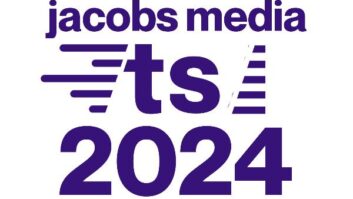The National Religious Broadcasters recently filed comments in response to an FCC public notice about the future of media. The first topic in NRB’s comments was “federal intrusion into the business of journalism.” These were authored by NRB President/CEO Frank Wright and Senior Vice President and General Counsel Craig Parshall.
Given the fact that media freedom is a constitutionally protected right, we believe that federal intrusion into the business of journalism is fraught with problems.

iStockphoto/MBPHOTO A cursory glance at the text of the First Amendment makes one thing very clear: each of those rights — religion, speech, assembly and the freedom of the press — were meant to be the rights of private citizens, to keep them vibrant and free from excessive government control. Our Founders believed that the very essence of press freedom required that it be free from any government regulation that would interfere with the primary mission of the press.
In 1774, when it was beginning to be clear to our beleaguered Continental Congress that the colonies might have to eventually break with England, the delegates to that body were already thinking ahead to those basic liberties that should ideally animate the colonies; liberties that are implicit in a free government and a healthy society. On October 26, 1774, the Congress penned a letter to Quebec, hoping to gain its support for the establishment of self-governing colonies, and its partnership in a mounted resistance against England.
In that letter, the members of the Continental Congress described, among other fundamental freedoms, what they saw as the essentials of a free press:
The last right we shall mention regards the freedom of the press. The importance of this consists of, besides the advancement of the truth … its ready communication of thoughts between subjects, and its consequential promotion of union among them, whereby oppressive officers are shamed or intimidated into more honourable and just modes of conducting affairs.
Three concepts from that quote stand out. First, that free press must remain free to investigate and then communicate the “truth.” Second, that the relationship of the press to the public is basically a horizontal one, where the press communicates to the citizens (“communication of thoughts between subjects”). Thirdly, and most important to the commission’s subject proceeding, is the subject matter of the business of a free press: to monitor, and when appropriate, to forcefully criticize government policies and officials, even to “shame and intimidate” the ruling government into “more honourable” paths. It is axiomatic that the more entangled the federal government becomes in the running of the press the more likely press outlets will be to self-censor themselves on issues of federal policy.
Climate change?
However, NRB notes a climate of opinion developing both in Washington and among academics, suggesting an increased role of the federal government into the business of journalism, and broadcast media.
In September 2009, a $1 million grant was announced, forging a partnership between the Knight Foundation and National Public Radio. We note that in December, the FCC met with representatives of this partnership to help the effort along, and to assist NPR, a tax-payer funded entity, in enlarging its already considerable media presence through web and mobile platforms such as cell phones.
It should also be noted that the Corporation for Public Broadcasting has requested the following sums from Congress: $542 million as an advance appropriation for fiscal year (FY) 2012; and for FY 2010 $307 million for “emergency grants to public radio and television stations” as a result of “this time of economic crisis;” $40 million for digital conversion; $27 million for satellite upgrades; and $32 million for children’s programming.
In July 2009, FCC Commissioner Michael Copps went on record to indicate that, in his opinion, what he perceived as the declining quality of American journalism was due in part to FCC deregulation of the media. The corollary to that, we assume, is that Commissioner Copps believes that increased regulation may be the solution.
In an October 19, 2009 article in the Columbia Journalism Review by the Washington Post’s Leonard Downie Jr., and communications professor Michael Schudson, it was suggested that our federal government must correct the decline of journalism both in its quality and its financial status by an even higher increase of public taxpayer funding for the Corporation for Public Broadcasting.
As we consider the commission’s inquiry, we note the statements made by Russian journalist Irina Samokhina at a press freedom roundtable in November of 2009. She described what happens when press freedom translates into a monolithic state-run media: the biggest competitor of the private, free press becomes the government subsidized, monopolistic press. In Russia there are 63 state-run newspapers in one region alone.
Fertilize, not subsidize
We applaud any efforts of the FCC to stimulate the flagging profession of journalism, including print, electronic and broadcast, by policies that would fertilize the conditions under which the media does its work.
However, we would recommend that the federal government not subsidize journalism, either directly or indirectly, as that would lead necessarily to government supported entities becoming monolithic, and the privately funded press struggling, unsuccessfully, to compete.
For the same reason we would oppose any suggestion, by the federal government, of journalism standards regarding professionalism or quality of information, news coverage or editorial opinion. When the government announces a preference, even if it does not come in the form of a regulatory mandate, that preference creates a massive tidal effect. NRB believes that the constitutional autonomy of media outlets, both secular and religious, could well be swept aside in the waves.
Lastly we would oppose federal suggestions of journalism standards, new regulations for the press, or super-funding of any particular segment of the media, on the grounds that it is constitutionally indefensible.
As the Supreme Court has recently noted, the “institutional press” is entitled to no greater protection under the First Amendment than newer or more informal media outlets. [Here and below, the NRB quotes from the case of Citizens United v. F.E.C., involving federal restrictions on broadcasting of political messages.]
Further, as a practical matter, if a federal agency draws lines of preference regarding one type of media but not another, that too may be suspect: “[w]ith the advent of the Internet and the decline of print and broadcast media, moreover, the line between the media and others who wish to comment on political and social issues becomes far more blurred.”
“The First Amendment was certainly not understood to condone the suppression of political speech … It was understood as a response to the repression of speech and the press that had existed in England and the heavy taxes on the press that were imposed in the colonies.”
NRB would suggest that it is a very small step from the clearly oppressive taxes imposed on the media at our Founding that led to the free press provision in the First Amendment, to our modern era of suggested federal entitlements and preferences for some aspects of the media but not others. The former was a direct suppression of the press — the latter could be just as devastating, given the economic difficulties all segments of the private media now face and the anticompetitive effect that results if media entitlements and preferences are doled our by our government.
NRB summarized its recommendations in the “future of media” proceeding as follows:
“It is NRB’s judgment that the best option is to empower private media entities, including Christian broadcasters, by (1) lifting outdated or illogical regulations regarding restrictions on fundraising for third-party non-profit groups by non-commercial stations, and clarifying and making more flexible, existing rules for non-commercial stations concerning sponsorship and underwriting spots, (2) avoiding the temptation to burden broadcasters with new ‘public interest’ standards or ‘localism’ mandates, or government-induced standards of ‘journalism,’ all of which are constitutionally suspect, and (3) by refusing to super-fund public broadcasting, as such increased funding would create government-funded competition against all other broadcasters, including Christian non-profit, non-commercial stations; an ironic result, considering the fact that this inquiry notes the need to ‘nourish and sustain’ journalism and the media.”












